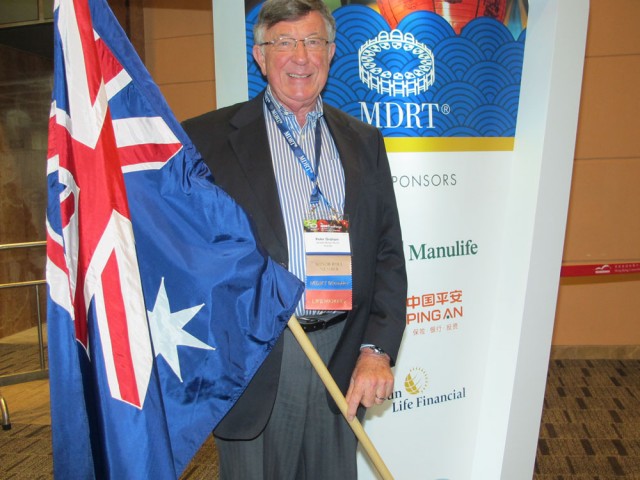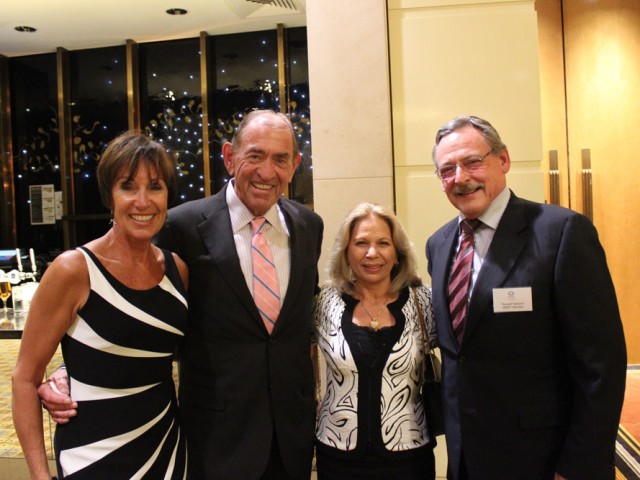Disputes around dividing an estate can be tough to manage, however Brian Hor - Special Counsel, Superannuation & Estate Planning with Townsends Business & Corporate Lawyers states that using Binding Death Benefit Nominations can be a useful way of ensuring superannuation benefits go to the intended parties.
When thinking about estate planning for your super death benefits, it is absolutely crucial to put into place a valid Binding Death Benefit Nomination (BDBN) to provide certainty regarding how your death benefits will be paid. This become particularly important where there is any potential for a conflict of interest to arise between your intended beneficiaries.
A recent example is the South Australian Supreme Court case of Brine v Carter [2015] SASC 205, in which the deceased was a member of a public offer super fund. He appointed his three adult sons and his de facto spouse as the executors of his Will. As such, under the fund trust deed these persons (and the deceased’s estate) were also eligible recipients for consideration of the trustee’s discretion in terms of the payment of death benefits from the super fund.
The deceased had two accounts with the super fund. Before he died, he wrote to the fund trustee to nominate his spouse to be the beneficiary of his indexed pension account, whilst the beneficiary of his other account was to be his estate because he had provided for his sons under his Will.
However, these were not binding nominations.
After the deceased died, his de facto spouse initially contacted the super fund and sought to have both of the deceased’s super accounts paid solely to her as the dependent spouse. Meanwhile she misrepresented to her co-executors (the three sons) that they and the estate were not eligible to receive any of the super so that she had to receive it all. Subsequently the sons found out from the super fund that in fact they and / or the estate could be considered for the exercise of discretion of the trustee to receive a death benefit payment from the fund. However, the trustee had warned them that the trustee’s practice was to invariably exercise its discretion in favour of a dependent rather than the estate, even if the deceased had made a non-binding nomination in favour of the estate.
Once the three sons discovered the spouse’s misrepresentation of the situation, they lodged a claim to the fund trustee that it should exercise its discretion in favour of the estate. However, as they were previously warned, the trustee ended up exercising its discretion in favour of the dependent spouse as to 100% of the death benefits.
The matter came to the Court, and notwithstanding the misrepresentations by the spouse and breach of her fiduciary duties as an executor up to the point in time when the three sons discovered her deceit, was decided in her favour.
The reason for this was the Court held that the actions of the sons in making a claim on behalf of the estate (without the spouse’s involvement) effectively meant they had accepted that she was not acting as an executor in the matter, so that she was therefore entitled to pursue her claim for payment in her own personal capacity and not as a co-executor. Since she was no longer acting as an executor, she was therefore not in breach of her duties as such, and therefore was entitled to receive the payment herself without having to account to the estate for it.
Ironically, if the three sons did not make a separate competing claim (which effectively operated as a consent to the spouse claiming in her own right), the spouse would have been held to be in breach of her duties as an executor and have to pay the money to the estate! As a result, notwithstanding her dishonest conduct, she won the case!
So the lesson here is – make sure you put in place a valid BDBN – especially where there is the potential for conflict between your intended beneficiaries. If your public offer super fund does not allow you to do so, perhaps consider establishing a new self-managed super fund that does allow the making of a non-lapsing BDBN, and then rollover your super accounts into the new fund so you can make the desired BDBN. Ideally, do so in connection with a review of your Will so as to ensure that overall your various estate planning documents are consistent with each other.

Brian Hor is Special Counsel (Superannuation & Estate Planning) with Townsends Business & Corporate Lawyers and has advised on tax, CGT, superannuation, sophisticated wills and estate planning for more than 25 years.













